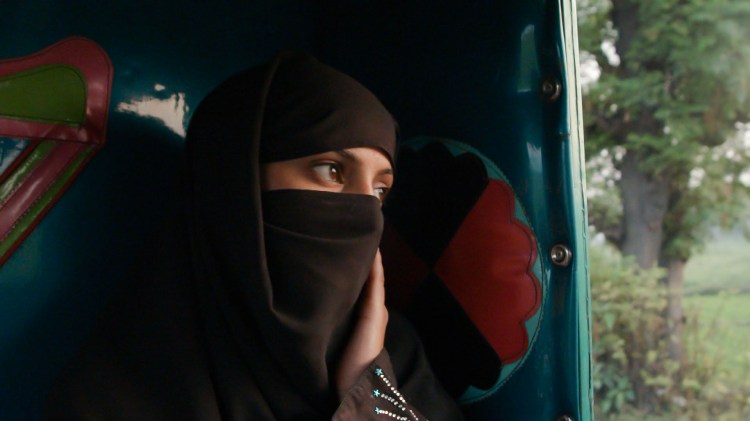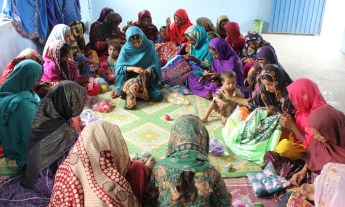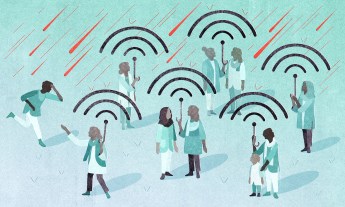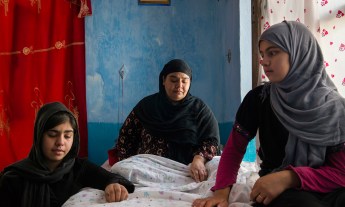
Sharmeen Obaid Chinoy, who won the 2016 Oscar for Best Documentary Short, explains why she feels it’s her duty to focus on topics others shy away from … like honor killings.
Film has a way of revealing the soul of each person you see onscreen, giving a human face to issues that might otherwise only be expressed as a headline or a statistic. In my career, I’ve focused on bringing the neglected narratives and hushed voices of marginalized communities to the forefront — the plight of children in war torn areas in Pakistan’s Taliban Generation; stories of the transgender community in Transgenders: Pakistan’s Open Secret; Iraqi refugees in Jordan and Syria in Iraq: The Lost Generation; and harrowing stories of women undergoing illegal abortions in the Philippines in City of Guilt. My documentary Saving Face, which in 2012 won an Academy Award for Best Documentary Short Subject, tackled the issue of acid attacks on women in Pakistan.
My most recent film, A Girl in the River: The Price of Forgiveness, addresses honor killings: the homicide of women and girls by male relatives as punishment for allegedly bringing dishonor to the family. It follows the story of Saba Qaiser, a young woman from Pakistan’s Punjab province who survived a murder attempt by her father and uncle for marrying a man they did not choose for her.
Every year in Pakistan, hundreds of women are killed in the name of honor. In 2014 alone, over 1,000 cases of honor killings were reported, though it is estimated that the actual figure is far greater as many incidents go unreported. Wives, daughters and mothers, who are viewed as embodying a family’s honor, are killed by their brothers and husbands when that honor is threatened — even on mere suspicion or false accusation of what can be the most trivial of matters, from perceived flirting with the wrong man to not bringing enough dowry to a marriage. Whatever the motivation, these premeditated, cold-blooded murders are justified under the guise of cultural or religious values.
When a father kills his daughter, his wife can forgive him, and when a brother kills his sister, his parents can forgive him.
While honor killings are technically illegal in Pakistan, Pakistani law does not enforce strict punishment on the perpetrators of the crime. The Pakistan Penal Code stipulates a minimum 10-year imprisonment, but a loophole allows the family of the victim to pardon the perpetrator. This means when a father kills his daughter, his wife can forgive him, and when a brother kills his sister, his parents can forgive him — and the prisoner is released. This lack of liability, coupled with an embedded patriarchal system, allows honor killings to run rampant.
So why no public outcry? Honor killings are considered a taboo subject by many in Pakistan, one generally ignored by the press. This reflects the way honor killings are tacitly condoned by society, with the underlying premise that such murders fall under the purview of the family and therefore should not be questioned or challenged. Even those newspapers that might report honor killings often embed justification within articles: “the girl was killed because she ran away from home,” or because “she fell in love,” or because “she wanted a divorce.” Of course, honor killings are not a problem unique to Pakistan. According to the Honour Based Violence Awareness Network, the United Nations Population Fund reported 5,000 honor killings around the world in 2000, but again, this is just an estimate, very likely low.
We must raise our sons to respect women, incorporating dialogue about gender equality at home, at school, at universities and beyond.
What needs to change in order for this to stop? I am pleased to report that, as A Girl in the River made headlines across the globe, I was invited to screen the film at the Prime Minister’s House, after which Prime Minister Nawaz Sharif pledged his support to help end honor killings in Pakistan, and asked his team to redraft laws on honor killings to help ensure that perpetrators are punished and victims are protected. As a father and a grandfather, it is important for him to make that gesture — not only to the women of Pakistan, but also to the women of his own family.
The possibility of having a new legislation protecting the women of Pakistan reaffirms my belief that documentary storytelling can do much to bring about change. But the problem goes much deeper. Part of the solution must be cultural. We must raise our sons to respect women, incorporating dialogue about gender equality at home, at school, at universities and beyond. Only then will we see the fruits of what we sow on a national policy level.
Women must be also be supported in raising their own voices at the government level. The alarming reality is that Pakistani women are, in certain parts of the country, currently unable to make their own policy decisions, pushing us further away from being the owners of our own stories and fighters for our own rights. I fear that we will continue to be treated as second-class citizens until we introduce and implement laws that protect and prioritize women’s rights and that change social mindsets — in short, until we are heard.
I have been sharply criticized for championing Pakistani women’s voices in my work. Both my films and the backlash speak volumes about the kinds of choices women have in the world and how our lives are impacted by the decisions taken by others. As a woman who has been fortunate enough to enjoy certain liberties, I feel it is my duty to continue initiating the conversations that will, I hope, facilitate change in the lives of the people I portray.
When I was 17 years old, my father told me: “If you speak the truth, I will stand with you and so will the world.” Telling the truth isn’t always easy in Pakistan, but it’s important.














